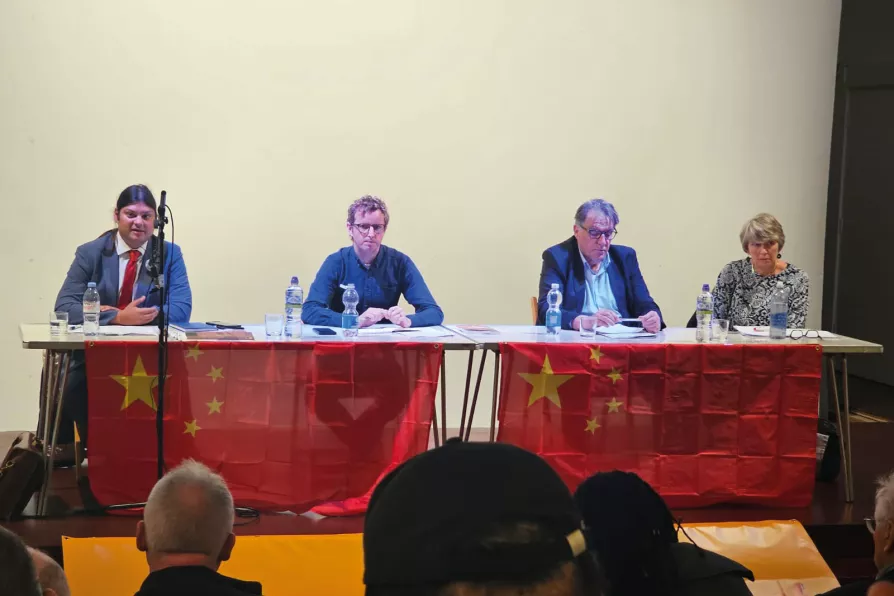REBECCA LONG BAILEY MP writes that it is time not just to adopt policies that will revitalise the lives of workers, but speak honestly and openly about whose side we are on and who the Labour Party is for: the millions, not the millionaires
‘A beacon of hope’ – 75 years of socialist China
BEN CHACKO reports from a day-long event to commemorate the achievements of the People’s Republic of China, from combating poverty to striving for a more peaceful world

 DISCUSSION: Speakers (left to right) Ben Chacko of the Morning Star, David Peat of Iskra Books, Kevan Nelson of the CPB, and Liz Payne of the British Peace Council
DISCUSSION: Speakers (left to right) Ben Chacko of the Morning Star, David Peat of Iskra Books, Kevan Nelson of the CPB, and Liz Payne of the British Peace Council
SEVENTY-FIVE years after its communist revolution, China is still working to build “an open, inclusive, clean and beautiful world of peace and shared prosperity,” minister of the Chinese embassy Zhao Fei told a celebratory anniversary meeting in central London at the weekend.
Friends of Socialist China hosted a day-long conference on China’s revolution in Bolivar Hall on Saturday with support from the Communist Party and Morning Star.
The packed meeting heard from Cuban, Venezuelan and Laotian diplomats, Chinese and British scholars, journalists, revolutionaries and anti-racist activists who discussed Chinese socialism, the new cold war and the rise of the global South.
Similar stories

BEN CHACKO appreciates the largest Adelante! conference yet, and how much there was to learn about decolonisation and defiance across Latin America and beyond

From defeating illiteracy to tackling student stress, China’s system transforms lives while putting people before profit — British educators should consider what we could learn from the world’s largest school system, writes LOGAN WILLIAMS

KEITH BENNETT surveys the People’s Republic’s first 75 years arguing that the vast changes rest on an essential continuity

ANDREW MURRAY reflects on the achievements and character of socialism with Chinese characteristics










